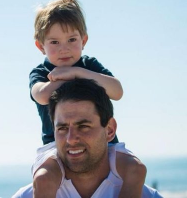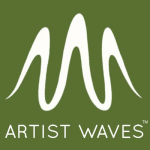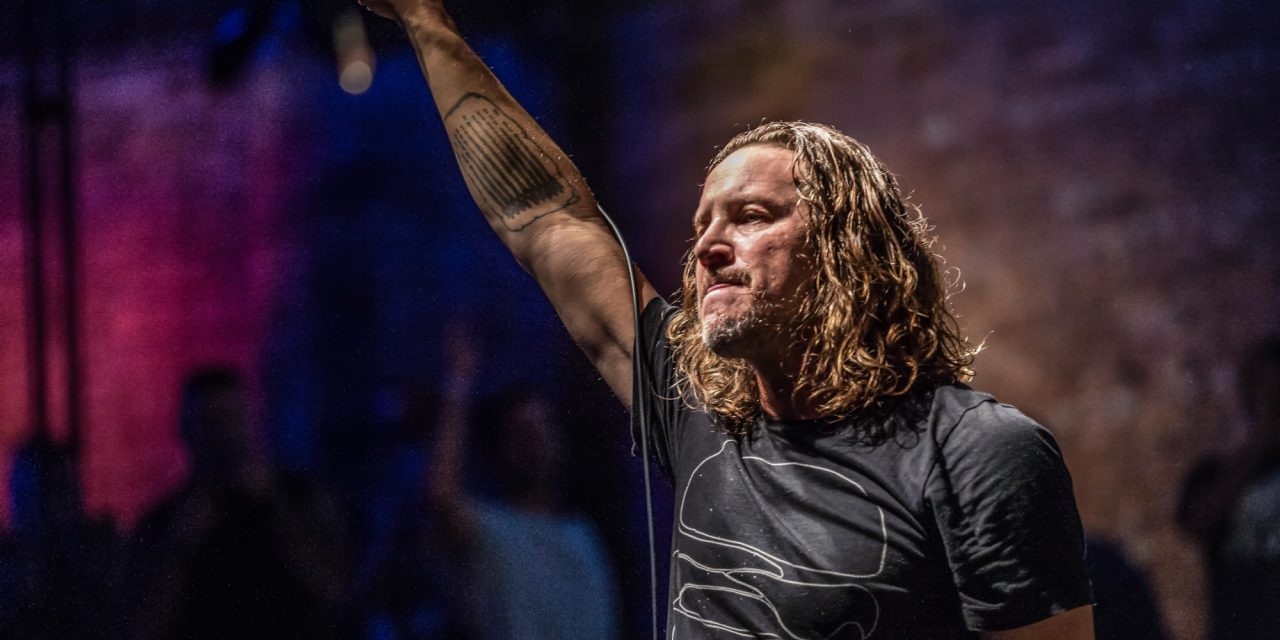Talking past, present and future of Candlebox with frontman, Kevin Martin
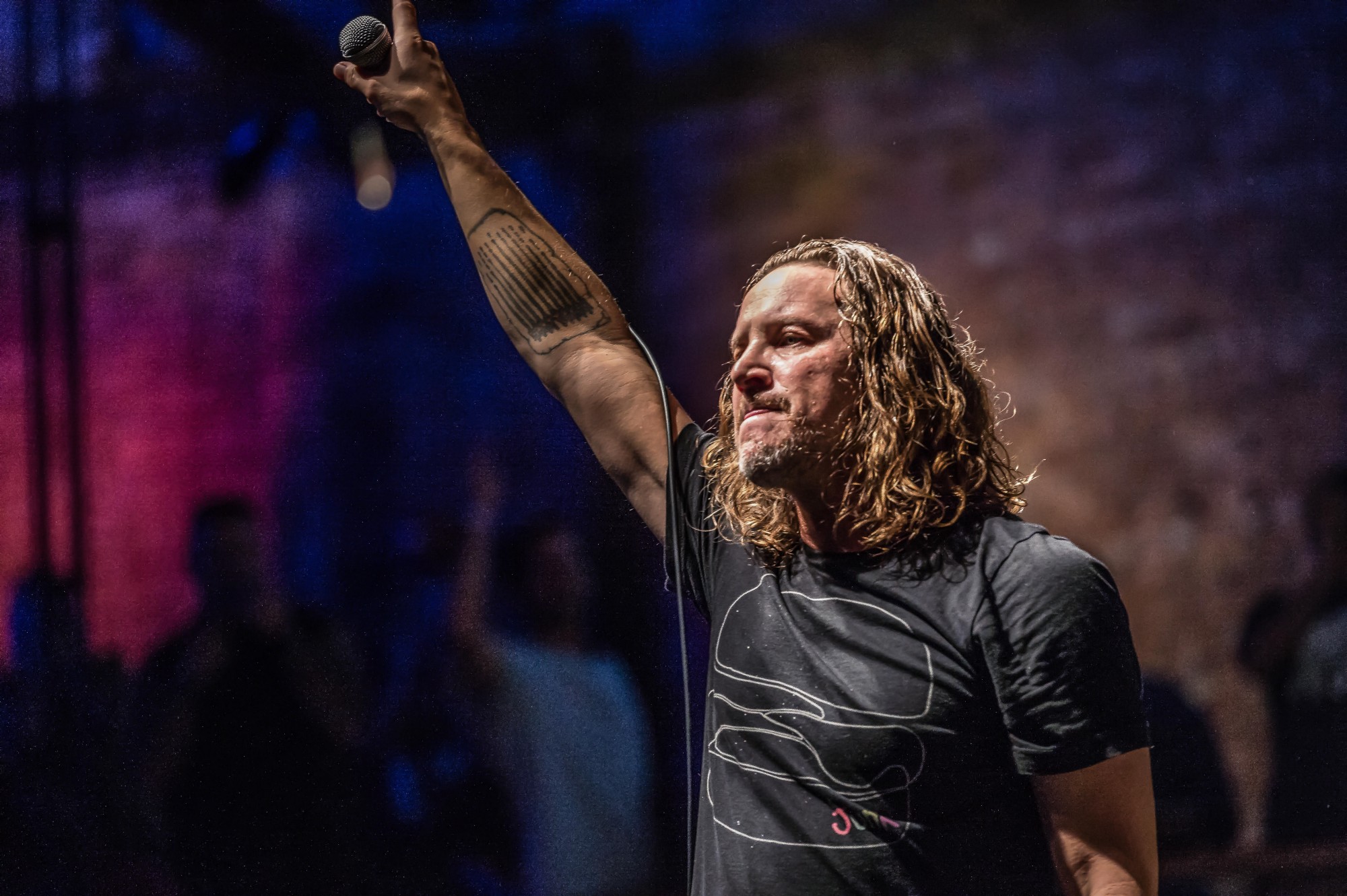
“I never look at any song on the setlist and think — I don’t want to play that tonight. I’m thankful for that.”
Candlebox’s latest record, Disappearing in Airports, will be turning one on April 22nd. The past year has been a complete “Disappearing” ride for the band as they’ve toured feverishly in support of the dynamic record. The latest run saw frontman, Kevin Martin and guitarist Brian Quinn out on the road as a duet, performing a wide range of Candlebox tunes in an intimate, acoustic setting. Just Martin, Quinn and two guitars.
In this, we saw stripped down versions of Candlebox classics like, “Far Behind”, emotional renditions of songs from all corners of their catalog, such as “Sometimes”, an eclectic mix of covers including Led Zeppelin’s “Going to California” or Mother Love Bone’s “Chloe Dancer” and of course, newer Disappearing in Airports tracks.
For Martin, it was an opportunity to connect with each song and fan in a more personal way. Often that meant sharing a powerful introduction story as to where or why the song was written. Ultimately, this gave the audience an injection of inspiration and something to think about pertaining to their own lives.
As the tour was winding down, I had the chance to sit with Martin before the Fall River, MA show to discuss the subtleties of this environment, the emotion of opening up on stage and the next chapter for Candlebox.
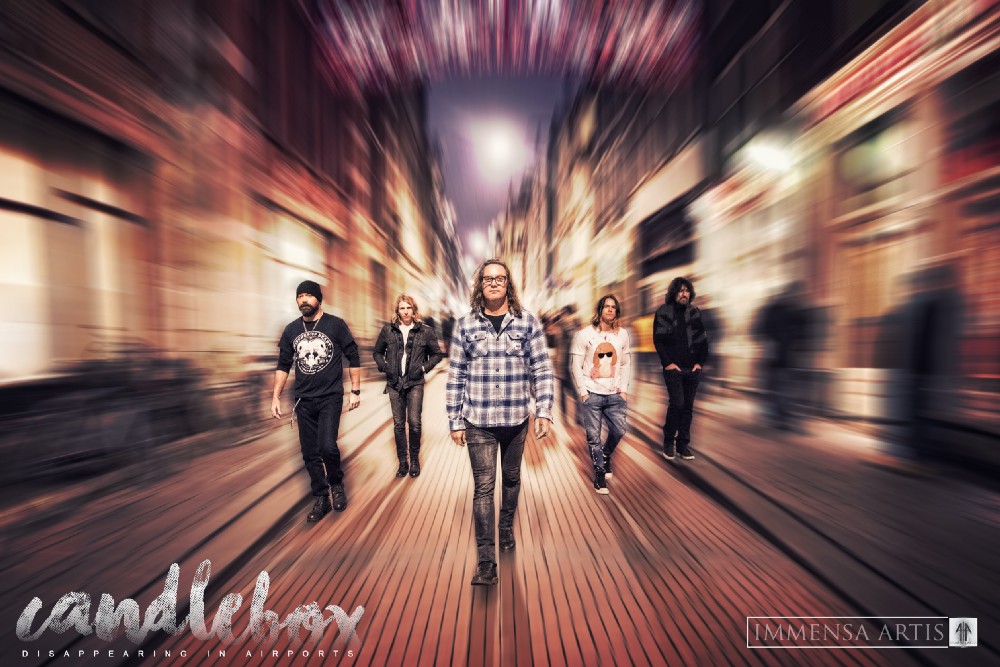
This is the first Disappearing in Airports acoustic tour, what has been the biggest difference for you?
Learning the songs to play acoustically. For example, we should be to doing “Vexatious” on this run because it was written on acoustic, but it’s one of those songs that due to the way it was recorded and how it sounds on the album, I don’t think it would be supported well enough in an acoustic vibe. Then there’s “Spotlights”, “Want it Back” and “Alive at Last”, which are perfect for an acoustic show. Those have been real standouts. The surprise though has been the audience’s response to the new stuff. There have been requests for it, people literally saying, “I just want to hear the new record, don’t play anything old.” That’s just awesome to hear. We switch it up and get to stuff from the first album and everything in between so it stays fresh for us. I’m enjoying every minute of it.
You guys started the year with tour of Europe. From afar, it seemed like an absolute blast.
It really was. It was hard as hell and it was exhausting, but the audience response was incredible. CD and merchandise sales went over great as well.
We waited too long. We should have been over there last year and the year before that. I think there’s an expectation for us to come back this year and it may be too late in the record to do that. Had we gone over prior to the release last year to set up the album, it would have been more beneficial to us. You can’t always kill two birds with one stone though. We are trying to figure out if we can squeeze in getting back there in the fall, but I’m not sure we can. Regardless, we did have a blast. The crowds were killer. We sold out a lot of shows. Europe is all about live shows.
How has touring on this record and this album cycle been different compared to previous records?
All the crowdfunding. That’s the biggest change for the artist to have an ability to make music and survive it. I don’t know if we would have been able to make this record and support it with the tours we wanted without crowdfunding. The pledge campaign was huge for us. The audience’s response to each pledge campaign was super positive. We’ve of course had a few people who are like, “Where’s my shirt?” That’s the down side, people don’t have the wherewithal to understand it’s not instant. It doesn’t say you get your shirt tomorrow, but that’s what everyone wants with the internet — instant gratification. You have those fans who really believe in you, want to be supportive and have you succeed, but then there are others who are never happy. The entitlement is above and beyond, you can’t give them enough.
Do you enjoy being heavily involved and getting the opportunity to be so hands on? It must feel like you run your own business?
You’re right, I am running my own business. I do like being hands on, although sometimes I wish I didn’t have to be. Candlebox is a business and that’s a weird thing. You are more than a band nowadays, you’re a brand. I have to protect that and I have to make sure that brand is always moving forward.
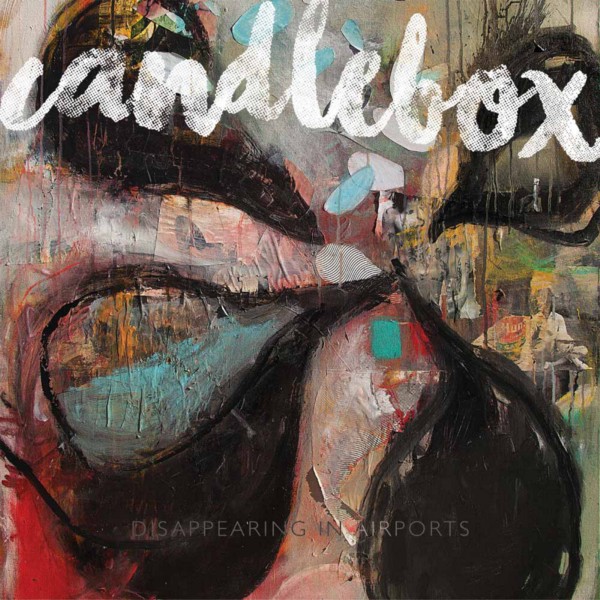
Disappearing in Airports has been very well received. I have to imagine it’s opened up some great opportunities. How do you feel about it now almost a year later?
I think people love this record. It’s streaming more than it’s selling. That’s a good thing, but I wish you could still sell physical copies. That being said, we are playing these shows and everybody knows the songs, so that’s awesome. I don’t know if I could tour on this record forever. I could another year or so. Maybe not so much in the States, but definitely in South America, Europe and Australia. Outside of the acoustic tour, we are only doing seven or eight fly-out dates in the States later this year. It looks like we may go to South America in the fall and I’d love to figure out Europe again.
I’m very proud of the record though. I still listen to it every day and its two-years-old for me now. I listen to at least one song on the record every day and that’s weird for me. I’ve never done that with a Candlebox record.
How many of the songs on Disappearing in Airports started on just an acoustic guitar?
A lot of them. “Vexatious”, “Want it Back”, “Spotlights”, “Only Because of You”, “Keep on Waiting” and “The Bridge”.
To be in this intimate setting, playing these songs acoustically now, does it bring you back to the raw moments of when you wrote them?
The interesting thing is, when I was writing them, they were not intended to be written on acoustic. It’s just what I had. The intention was just to get the foundation of the song down so that when I took it to the band, it would become a full rock thing. In doing that, I learned how important that process was in writing the song. Playing them live this way, I’ve had to figure out how to structure the parts to support one another because there is no drum and bass foundation. It requires a little bit more finesse when you play them acoustically live as opposed to when you are just sitting down writing them and making a record. That’s been an interesting experience. Some nights I’ll play certain songs with a pick and some nights I won’t. The mood is set each night on how the songs will be performed.
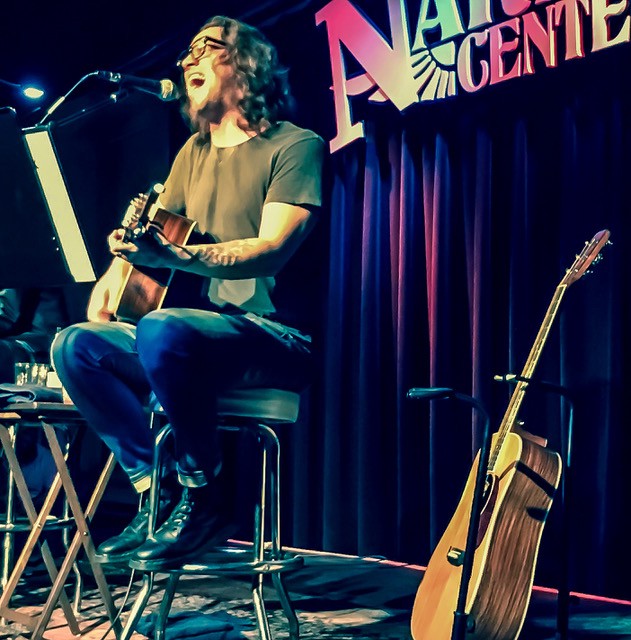
In preparation and when you are writing the setlist each night, are you revisiting some songs from your catalog that you haven’t played in a while?
Oh yeah. “You” for example. We had to totally revisit that song. Pretty much everything we play off of Lucy as well. Songs like “Surrendering” and “It’s Alright” were written on acoustic so they fit well. Each night I can come up with a predominantly acoustic driven setlist because many of the songs in our entire catalog started on an acoustic. “Blinders” is a total nightmare for me to play like this, but I love playing it, so I had to figure out how. It’s an electric guitar song. Positioning of capos is really important. What may have been OK in a standard tuning, may not work acoustically so you have to figure out the right sound by using a capo.
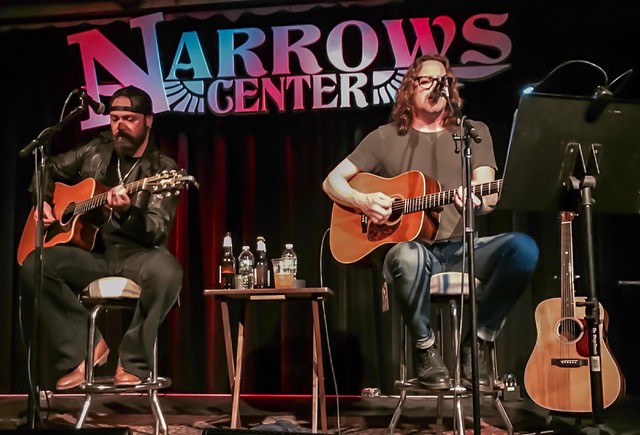
Do you enjoy the process of making an old song new again?
I did with “You” because it’s just not an acoustic song. Many of the others were a bit simpler and you’re like “Yeah, no problem, they can be played that way.” What was different about “You” was that it required a bunch of different trials and positions to figure out what the right sound was. It was to the point of frustration. “Far Behind” and “Miss You” are easy. I never look at any song on the setlist and think – I don’t want to play that tonight. I’m thankful for that.
What’s the emotion of being able to tell the stories behind the songs in this type of environment? It’s a unique setting that also gives the audience a different perspective on the songs.
That was the first thing that scared the shit out of me about doing this. I didn’t want to take anybody’s connection away. Like “Far Behind” for example. It was originally “now Andy” not “now maybe.” It’s from the perspective of the drug. This is the drug talking to him, “Now you are gone and I can’t get you high anymore.” It is interesting for me to write the songs from a different perspective. Being able to tell the story is amazing, but at the same time I really don’t want to change anyone’s interpretation. The first show was very cathartic for me to revisit those emotions. I thought back to what I was doing when I wrote it. The minute you start talking about it and bringing people into the environment of it, it changes the dynamic. “Cover Me” has changed for me since the day it has written, especially over the past four years. I’ve been having a way bigger understanding of what I was trying to say. I like how the songs change themselves every night. All of a sudden, what I was doing at the time will pop into my head.
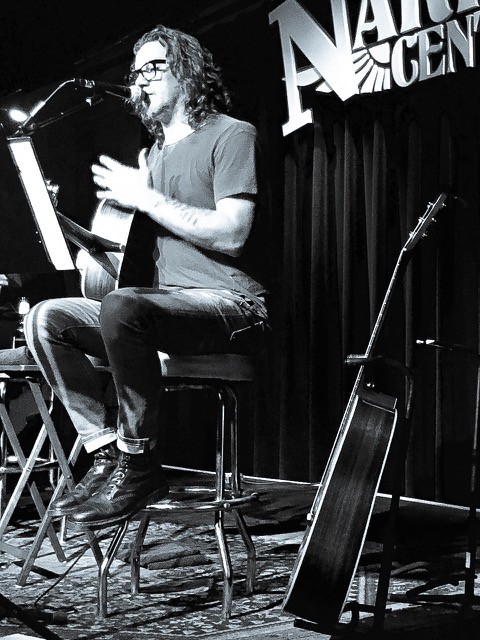
I’ve noticed lately you’ve thrown in a lot of Andy Wood or Mother Love Bone songs and references. It’s been a bit a reflective time in the world of rock the past two years. Has that impacted you?
Initially when we did the Temple of the Dog cover it was in tribute to 25 years since the release of the record. With Andy and Mother Love Bone, he was just such an influence on me. That’s intentional, for me to throw songs of his into the mix. It’s about connecting with his spirituality and musicality, and reminding people of how great he was. It’s not really about grabbing people’s attention other than, Andy is the guy who inspired the songs. Every night I sing “Far Behind,” it’s about him. It will always be that way for me. Andy was massive inspiration for me. He actually gave me the time of day. I wasn’t on speed dial on his phone, but we were friends. Like Bowie or Elton John are for some people, Andy was that way for me. There was something really special about him, the way he sang and the way he wrote songs that keeps me going back to who he was.
Have you been writing on the road?
No, I’m really bad at that. (Laughs) I’m just not that prolific. Brian (Quinn) plays every day, all day long. I don’t make records until I’m ready — until I physically feel like I have to make a record. I played something on stage today and thought — that’d be a cool song. But then I walk away from it. You can’t force it, although I probably should. I just don’t enjoy that.
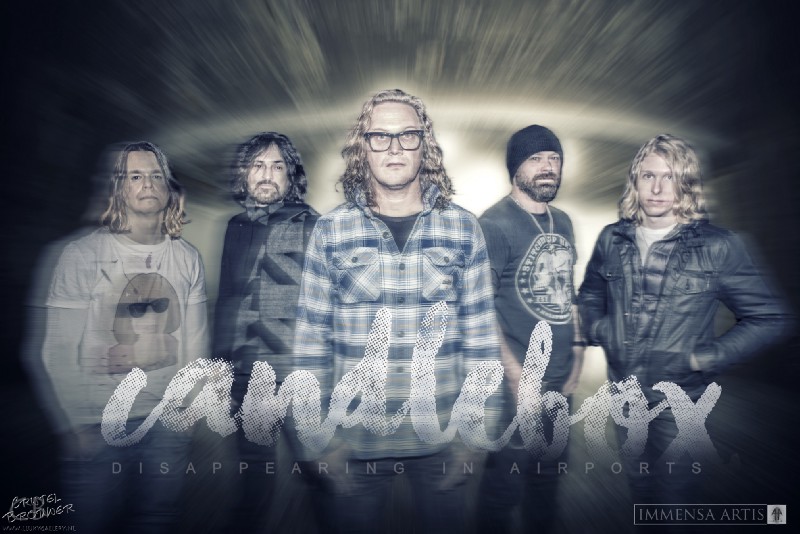
What’s next for Candlebox?
We have a few dates with Fuel, four or five I believe. I said two years ago I wanted to tour with them, but they weren’t touring at the time. Then this year, they are touring and we are not doing much, but it looks like we are able to link up for a few dates. I’ve known Brett Scallions for so long. He’s very profound in his songwriting. I love Brett as a person. He’s an incredibly talented musician. I’d love to do a full tour with them sometime in the future.
Next year is the 25th anniversary of our first album. If we don’t do something with that as a band, then we’ll probably hold off until the 30th anniversary and I’ll do it with Pete, Bardi and Scott. I think doing something with the original lineup would be really fun. Just playing that debut record, 30 years later, with the guys that wrote it.
As for the rest of this year, in addition to what is already on the schedule, a tour of South America will start around the end of November or early December. Then I go to Australia around Christmas time, and I hope to do a few shows there too. It’s all good, positive and fun.
If you enjoyed, please recommend by clicking the heart below.
Follow Artist Waves on: Facebook, Twitter & Medium
~ follow Jeff Gorra | twitter @JeffGorra |JeffGorra@ArtistWaves.com
